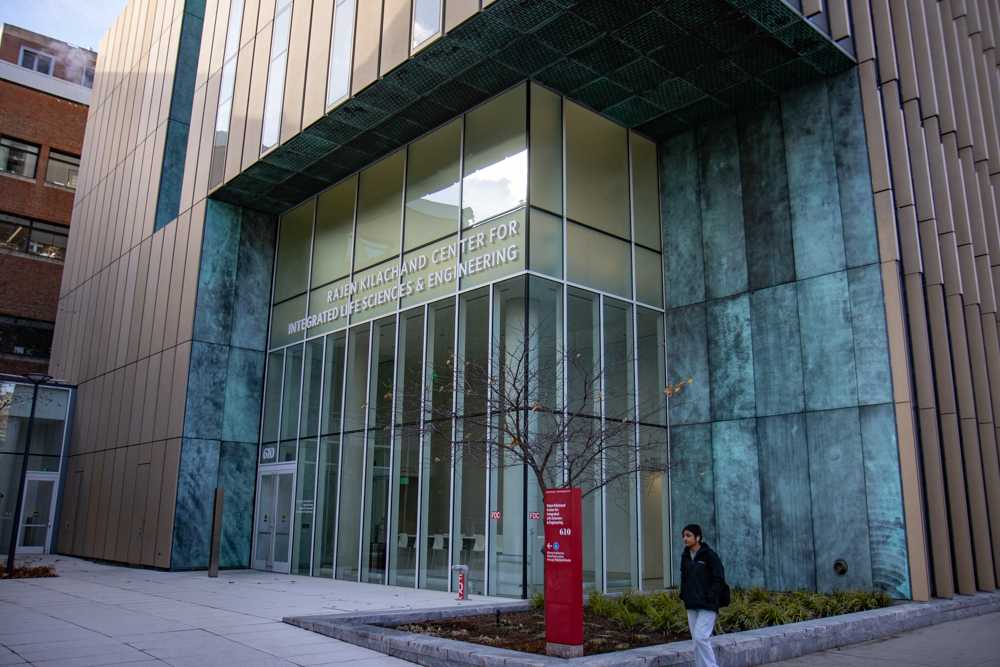Like laughter, happiness might also be contagious.
Your happiness depends on more than just you, it depends on your friends, their friends and their friends, according to a recent study.
In the study, researchers from Harvard Medical School and the University of California, San Diego, found that happiness depends largely on a person’s social network. By observing the happiness of almost 5,000 people over a 20-year period, scientists concluded that happiness seems to be contagious, but only up to three degrees of separation.’
Researchers also found that sadness spreads, too, but that it doesn’t spread as consistently. Happy friends improve the people around them by 9 percent, while each additional unhappy friend increases sadness by only 7 percent, Harvard Medical School professor Nicholas Christakis said.’
‘Sometimes unhappiness spread and sometimes it didn’t,’ Christakis said. ‘I think that it makes much more sense, evolutionarily speaking, for happiness to spread more than unhappiness, because the function of emotions in part is sort of a social function. Happiness will keep groups together whereas unhappiness will keep the apart.’
There may be more of an isolating effect associated with sadness, Boston University biology professor James Traniello said.
‘There are some parallels to the use of laughter as a signal to indicate your emotional state and how various emotional states might spread within a group by that kind of signaling,’ Traniello said. ‘Laughter can be contagious, but another emotion that can be signaled is empathy. Why some emotions are capable of spreading and others aren’t is somewhat difficult to understand without further study.’
Happiness was defined in the study as consisting of positive emotions. Happiness levels were determined using the Center for Epidemiological Studies depression scale (CES-D).’ To measure happiness, the researchers used four items from the CES-D in which people were asked how often they experienced certain feelings’ ‘-‘- hopeful, happy, content, adequate’ ‘-‘- during the previous week. According to the study, the subcomponent of the CES-D has ‘been shown to be a valid instrument for measuring positive affect, and it has been taken as interchangeable with the concept of happiness.’ Participants were rated as ‘happy’ when they scored a perfect score on all four questions.
America should be looked at as a ‘good-old-fashioned quilt,’ according to Christakis.
‘Imagine a vast network of people,’ Christakis said. ‘Our work shows that there are happy and unhappy patches in this vast fabric of humanity, and whether or not you’re happy depends on what kind of patch you’re on.’
Previous research shows that those who have good social relationships are happier than those who don’t, so the effect of the first degree of separation is highly expected, according to Shige Oishi, a psychology professor at the University of Virginia.
‘However, the effect of the second and third degree of separation is not intuitive,’ Oishi said in an email. ‘I’d have never guessed it. But, it does make sense that a friend’s friend could have an impact on the ego’s happiness, if a friend’s friend makes this friend happy.’
According to the study, when an individual becomes happy, his friend’s chances of being happy increase, and a friend of that friend experiences almost a 10 percent chance of increased happiness, and a friend of that friend has a 5.6 percent chance of increased happiness. The system shows that happiness is communicable along three degrees of separation, Christakis said.
‘Although there’s six degrees of separation between people, there are only three degrees of influence,’ Christakis said. ‘Why this may be the case, it is a very interesting question, which I will not discuss.’
Study participants also completed a screening test for depression called The Center for Epidemiological Studies Depression Index. Using this evidence, the researchers found that when an individual becomes happy, a next door neighbor experiences a 34 percent increased chance of becoming happy, a friend living within a mile experiences a 25 percent increased chance of becoming happy, a sibling living within one mile has a 14 percent increased chance of becoming happy, and a spouse experiences an 8 percent increased chance of becoming happy.
‘The spread of happiness isn’t just random bouncing off some individuals and sticking to some people and falling off others,’ Traniello said.’ ‘[Happiness spreading] is likely a result that evolved to maintain tight social bonds because of the benefits.’
Oishi said he also found how strong the effect of geographical distance was on happiness.’
‘Although we are connected with friends and family members who live far away via cell phone and Internet, these results indicate that there is nothing like a face-to-face interaction,’ Oishi said in an email. ‘This is a profound ‘-‘- and somewhat disturbing ‘-‘- finding. We are told to ‘get connected’ by cell phone companies, but in order to ‘get connected’ you really have to live close by, and interact face-to-face, day-to-day.’
Traniello, whose research focuses on ecological factors that influence the genetics of colonies and populations in species such as ants, said that it’s difficult to compare this research to his research, because ants do not seem to have happiness. However, he added that happiness itself might need a more concrete definition for both ants and primates.
‘If we look at children, it may look like they’re fooling around, so we assume they’re happy. But we really have to define the state of happiness by looking at brain chemistry changes,’ Traniello said.
‘There was a news item a few weeks ago that found a chimp mourning the loss of one of the individuals in the group within the zoo, but how do you know that an individual is grieving?’ Traniello said. ‘We can develop parallels in facial expressions or changes in affect in the development of smiling in human facial expression in non-human primates, but it’s a difficult thing to do.’
























































































































